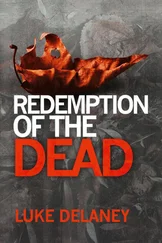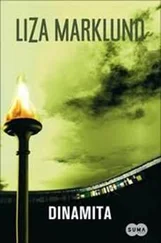‘Where does she live now?’
‘A suburb, north of the city somewhere.’
‘Married?’
‘Living with someone,’ Berit said, ‘no children. What are you after?’
Annika rocked back and forth on her heels, shaking the noise from her head.
‘Just information,’ she said, ‘an old wedding announcement I need to check.’
‘A wedding announcement?’ Berit echoed as Annika walked off without explaining.
Back in her office Annika sat down at her screen and waited for her pulse to slow down. Then she raised her hands and let them slowly uncover the truth.
She started with the government site, and downloaded a PDF file about the head of the Ministry of Culture. It had a picture of Karina Björnlund giving a crooked smile, and information about her areas of responsibility: cultural heritage, art, the printed word, radio and television, faith communities.
In the personal section of the file it said that she was born in 1951 and raised in Luleå, and now lived in Knivsta with her partner.
Nothing about Karlsvik , Annika thought, and clicked on to an information website.
She looked up Karina Björnlund Knivsta on the census and found one match, a woman born in 1951. She clicked on background information and got the name of the parish she was born in.
Lower Luleå.
She bit the inside of her cheek, her palms were itching, she needed to look deeper. She went onto Google again, and did a general search for ‘karlsvik and lower luleå’: nineteen results. The top one was the history of a saw-fitter, an Olof Falck from Hälleström (1758-1830) in what was now the parish of Norrfjärden in Piteå council district. Annika did a search within that page and discovered that one of the saw-fitter’s descendants, a Beda Markström, born 1885, had settled in Karlsvik in the parish of Lower Luleå.
She searched for a map and found it.
Karlsvik was a small community just outside Luleå, on the other side of the river.
She leaned back, letting the information sink in. It was making her scalp itch, her mouth dry, her fingers twitch. She jotted the main points in her notebook, then dialled the editor-in-chief’s internal number.
‘Have you got a few minutes?’
The air in the conference room on the seventh floor of the Federation of County Councils was sour with stale oxygen. Coffee fumes and old nicotine breath mixed with the sweat of middle-aged men in wool jackets. Thomas wiped his brow. Unconsciously he slid a finger under the knot of his tie and pulled it open to let in more air.
This was the conference group’s first official meeting, which meant that the hierarchies and structures had not settled in yet. The mood of back-slapping had slid into territorial scent-marking the longer the meeting went on. It would take at least one more marathon meeting before they could get anything sensible done.
The congress of the Federation of County Councils and the Association of Local Councils at Norrköping in June was due to consider one very large and very serious question. The two groups would each hold their own individual conference but with several common sessions. The main question was whether they should merge. The common and overriding theme of the congress was ‘the citizen and the future’.
Thomas opened his eyes wide, staring at the congress timetable.
He couldn’t escape. Sophia was with him everywhere. Now she was there between the lines of the committee’s proposals for long-term programmes, her heels clicking through the documentation about collaboration and the congressional information sent out to members of the Federation of County Councils.
Thomas leaned back, listening to the director of communication give a long list of directives, and let his eyes roam across the participants.
Sophia in a pin-striped suit and silk blouse with sparkling teeth and apple hair over by the window. Sophia in her lacy bra and parted lips leaning against the flip-chart. Sophia with no underwear on riding the overhead projector.
He cleared his throat and shook his head, forcing his brain back to reality.
At the far end of the table sat the information director, who was also chair of the project group, and one of those responsible for factual content. The pair responsible for organization and administration poured more coffee and picked at the rapidly hardening pastries. The other participants had gathered near the window, where they sat with their jackets pressed hard into the backs of their chairs, trying to look as though they weren’t about to yawn.
His reality. Sophia’s reality.
What was Annika doing right now? What did he know about her reality?
Without him understanding how it happened, or what had been said, the meeting broke up to the scrape of chairs and relieved voices. He pulled himself together, and, without looking up, gathered his documents together.
‘Samuelsson,’ said a voice above him, and he looked up quickly. ‘How’s the collaboration with the Federation of County Councils going?’
Thomas stood up and shook the information director by the hand, feeling his brain solidify and his words dry up. What the hell was he supposed to say to that?
‘Oh,’ he said, gulping audibly, ‘it’s going pretty well.’
‘No real areas of conflict?’
He pulled his hand away to hide the fact that he was breaking into a sweat.
‘As long as we’re working towards the same goal, and have a good number of independent players in the project, it’s working fairly well,’ he said, wondering exactly what he meant by that.
‘That Sophia Grenborg, what’s she like?’
The question forced the last oxygen from his lungs; he opened his mouth but was unable to breathe.
‘Oh, you know, fine,’ he heard himself say. ‘A bit dull. Upper-class, has never had any real setbacks in life…’
The information director looked at him in surprise. ‘I meant what’s she like to work with. Is she pressing the Federation’s interests at our expense?’
To his embarrassment, Thomas could feel himself blushing, what a stupid mistake.
‘It’s okay as long as we don’t let our guard down,’ he said. ‘We can’t let them get the upper hand, so there’s a certain amount of positioning going on in advance of the congress, if I can put it like that…’
The information director nodded in concentration. ‘I understand. Listen, could you summarize your experiences, partly within your current area of focus, but particularly with regard to the regional issue, as soon as possible?’
‘Of course,’ Thomas said, straightening his tie. ‘Just tell me what you want and I’ll get down to it.’
The information director boxed Thomas lightly on his left shoulder. ‘That’s what I like to hear,’ he said, and glided out of the room.
The room emptied of people, leaving Thomas closing his briefcase. How was the collaboration with the Federation of County Councils going? Sophia Grenborg, what was she really like?
Thomas turned his back on the thought, picked up his briefcase and headed sternly towards the lifts.
The corridor outside his room was silent and gloomy; the structural pattern of the walls emphasized and warped by the lamps spreading light in fountain-shaped shadows. He hurried into his office, shut the door and sank down at the desk.
He couldn’t carry on like this. Why had he let things get this far? Everything he had struggled for for years was at risk; the relationships he had built up with his family and his employers would be worthless if he was discovered to be sharing a bed with the Federation of County Councils. His eyes fixed on the picture of Annika and the children that he had put in a silver frame on the desk, a photograph he had taken last summer at his aunt’s seventieth birthday party. The picture didn’t do them justice. The children were dressed up and slightly stiff, Annika was in a knee-length dress that flowed and softened her sharp-edged body. She had plaited her hair so that it hung quiet and controlled, like a whip, down her back.
Читать дальше












